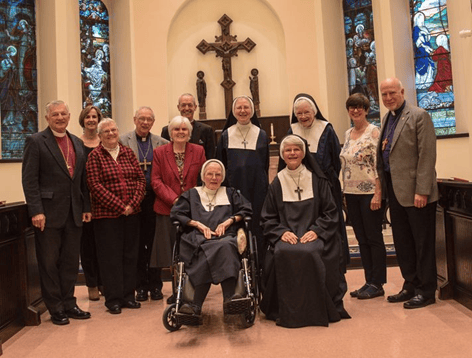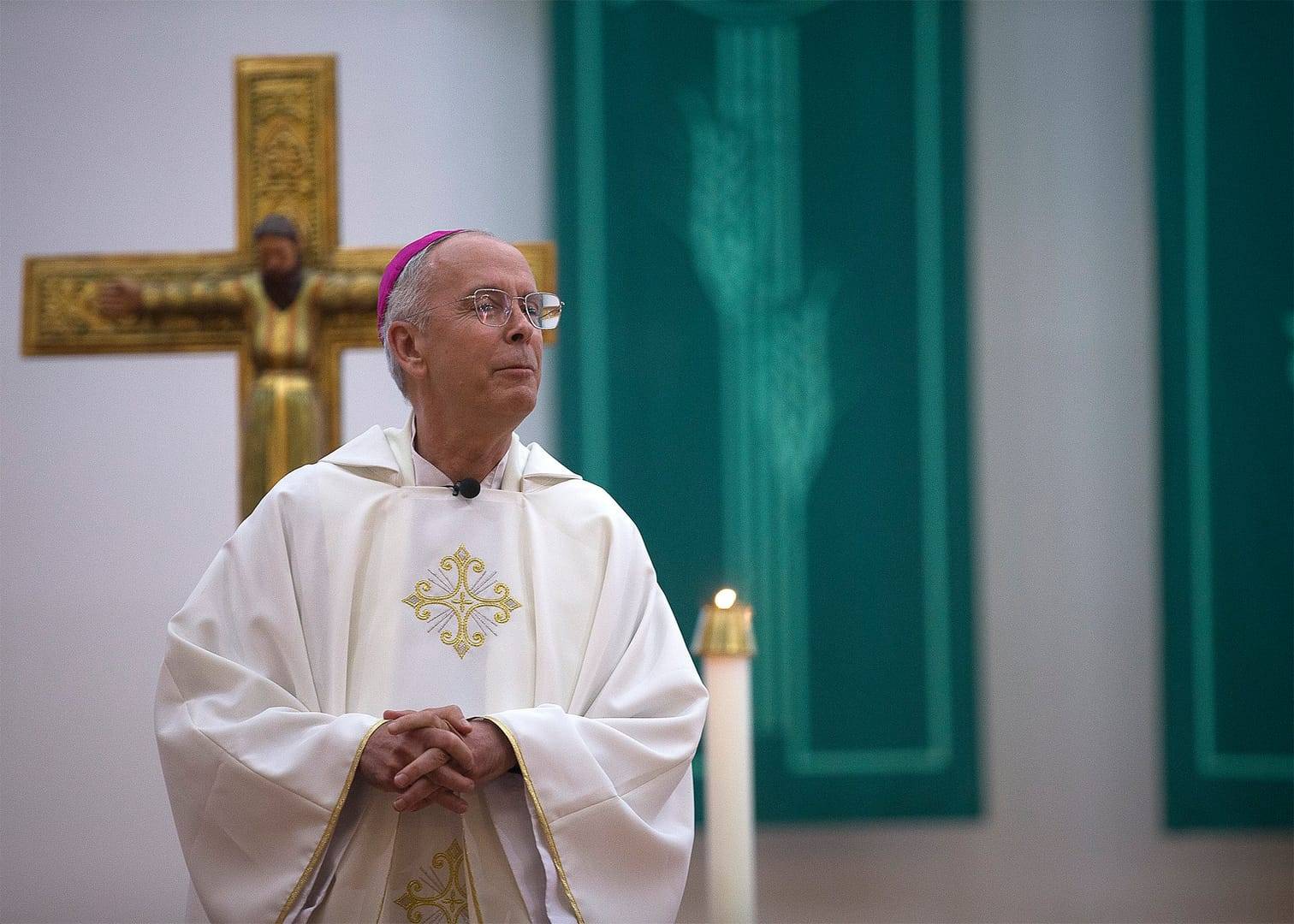BATON ROUGE, La. — Baton Rouge Bishop Robert W. Muench renewed a call for a diocesan-wide week of prayer, fasting and reflection after the latest fatal shootings in the city, which this time took the lives of three law enforcement officers.
He urged all to “work toward a lasting peace in our communities.”
Early July 17, a former Marine fatally shot three police officers, and wounded three more, one critically, less than a mile from the city’s police headquarters. The gunman, later identified as Gavin Long of Missouri, was killed at the scene, officials said.
Baton Rouge was still reeling from the fatal shooting of Alton Sterling, 37, by police during an altercation outside a convenience store July 5. The first week of July also saw the fatal shooting of Philando Castile, 32, in suburban St. Paul, Minnesota, by police officers July 6, followed by the sniper shooting in Dallas that killed five police officers July 7.
“Words cannot express the emotions we feel for those who have lost loved ones in the tragic events of this day,” Muench said in a statement. “Their entire lives have been unexpectedly and terribly turned upside down.”
He said he and the diocese’s vicar general, Father Tom Ranzino, visited two of the families affected by the shootings later that afternoon to share “prayer and support in the midst of their shock, horror and grief.”
“Prayer is a powerful path to follow when tragedy happens, but even the most devout of us sometime question: ‘What good could come of this?’” the bishop said.
“Only the word of God has the answer to the questions that shake our faith: The answer is our Lord Jesus Christ. In Jesus, hope ultimately triumphs over despair; love ultimately triumphs over hate; and resurrection ultimately triumphs over death.”
In the neighboring Diocese of Houma-Thibodaux, Bishop Shelton J. Fabre said that “our tears are still falling and our fresh and fervent prayers are still ascending to God” over the earlier violence and loss of life in Louisiana when the law enforcement offers were ambushed in Baton Rouge, a diocese “very close to home for us.”
“As a native of New Roads and a priest of the Diocese of Baton Rouge for 17 years, I feel a deep ache in my heart because of recent violence that has happened there,” said Fabre in a reflection posted July 17 on his Facebook page.
“My sincere condolences to those who have lost loved ones today or in the past weeks in the violence that has occurred in Baton Rouge, Minneapolis, Dallas, Istanbul and Nice,” he said. “Unfortunately, I fear that we as a nation and a world are becoming too accustomed to the tragic events of violence and loss of human life such as has occurred over the past few weeks.”
He said in such times, he is drawn to the Lord’s words to the prophet Isaiah: “Comfort my people.” He said he also chose those words for his episcopal motto “because I feel that deep within the heart of God is a desire to comfort us in our pain.
“Each of us reacts differently to violent tragedy. Some of us may be angry. Violence pierces our hearts and leaves us in pain. Anger flows from pain,” Fabre said. “For those of us who are angry, I simply remind us that underneath the anger, in the pain, there is God wanting to ‘comfort his people.’
“Some of us may have questions like, ‘Will the violence and killing stop? When will this end?’ Those are great questions. There, in the questions and together genuinely seeking to find answers constructively, we will find God listening to us wanting to ‘comfort his people.’”
He called on all people of Houma-Thibodaux, regardless of their religion or their history, to pray, whether in privacy at home or at a large church gathering.
Fabre urged people to consider three things in prayer: “First, to each personally pray daily for an end to violence. Violence is a complex evil; however, violence is often propelled by selfishness and self-centeredness. We as people must look ‘outside of ourselves,’ we must turn to God, for it is in him that our true peace lies.”
Secondly, he said people should come together in prayer, and asked every Catholic church in the diocese over the next two weeks to offer a Holy Hour “to pray for an end to violence.”
Thirdly, “let us continue to work together for justice and peace,” Fabre said.
“As Pope Francis has indicated,” he continued, “we must truly seek to ‘encounter’ those who are racially or ethnically different from us in a real effort to appreciate the countless gifts that unite us, and to seek to address and to solve the problems that challenge and seek to divide us, complicating our lives together.”
“When we learn to ‘see’ people with the eyes of the Lord,” he said, “we will then move forward in justice and peace.”















